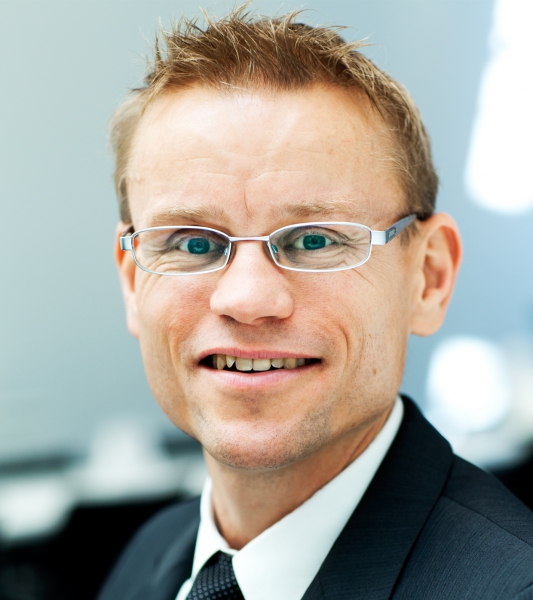From CBS graduate to sustainability director
Portrait of a CBS Sustainability AlumnusJes Faltum graduated from CBS in 2000 with a diploma in cand.merc.aud. During his studies at Copenhagen Business School he became familiar with the sustainability agenda, and has since integrated the green agenda throughout his career which has led him to his current position as Director in Environmental Sustainability for the LEGO Group. It was very untraditional 14 years ago to see a cand.merc.aud. student engage academically in the sustainability agenda. Even though times have changed Jes Faltum points out that there is still a need for graduates within the sustainability field as well as a need for an in-depth understanding of business. But how do you wind up in a dream position within sustainability? Jes Faltum tells us how he got turned on to the path of sustainability. |
Name: Jes Faltum |
How or where did you get involved with sustainability for the first time?
I was introduced to the Corporate Social Responsibility agenda when I was about to start on my master thesis, when Preben Sørensen, who at the time was heading the sustainability department of Deloitte, held a presentation at CBS about eco efficiency in one of my courses. I thought it sounded so interesting that I had to write my thesis on it. I contacted Preben and he got involved as my supervisor. I wrote my thesis on how to earn more money by looking at your production through a green perspective. At the time I was working for DFDS, known today as DSV, and wrote my thesis in collaboration with them, so I had a focus on logistics and transport. The title of my thesis ended up being “Strategic consideration on eco efficiency when introducing environmental reporting”. At the time it wasn’t common to write within this field, and especially not on the cand.merc.aud. programme.
Which aspect of the sustainability agenda interested you?
There was something appealing about trying things out in a new way also regarding my career. I found the idea of sustainability interesting in relation to the traditional controlling and costs, - to try to look at other parameters, like non-financial data and how it could help optimize the bottom-line in the long term.
In 2003, I held a position as controller at Novozymes, was a part of the team who produced the first integrated annual report and won the annual report award (årsregnskabsprisen). It was exciting because you could combine financials and non-financials, and create a new way of reporting. Although I was placed in a financial position at Novozymes, my main task was consolidation of non-financial data, where you had to create new rules and standards to follow. When I started in the LEGO Group in 2007 I moved to the other side of the table and left the accounting world. Today I work with the strategic side of the equation.
How has your background from CBS impacted your career within sustainability?
Boards and managements are concerned with money and the bottom-line which means that we who, work on the soft side of business, have to be able to translate what we do into cents and dollars. Therefore I see great importance in being able to understand the business fully, so you are able to contribute to the business through strategic CSR initiatives that support what you want as a business.
What would you recommend for CBS students in pursuit of a career within Sustainability?
Sustainability has come to stay, and it has become a much more integrated part of the business than before. Understanding how to conduct business and how to be commercial is crucial.
It is essential to be able to solve the challenges piling up before us, like climate change, through a long-term approach and not by a philanthropic way of thinking. I see it as important to have a good understanding of basic business and business administration. However the new “normal" is that all employees will need to have more knowledge of sustainability as this to an ever growing extent will set the scene for doing business as we only have one planet to sustain us. The better you understand profits and the commercial perspective in a “one planet” perspective, the more you will be able to see possibilities instead of limitations.
Sonia Washuus de Carvalho, PRME and Sustainability Office
